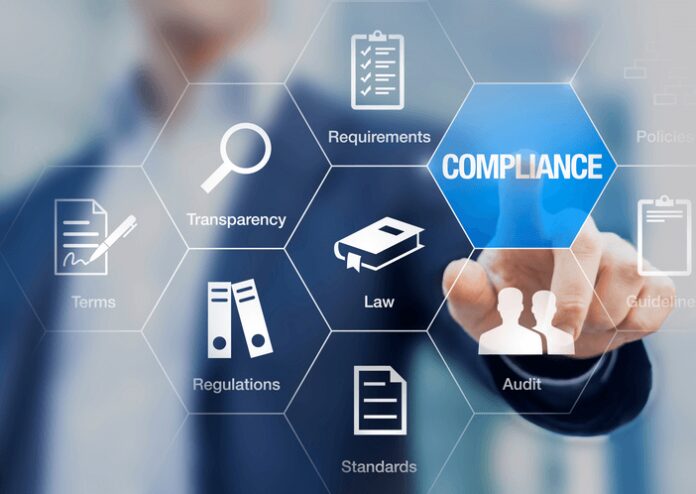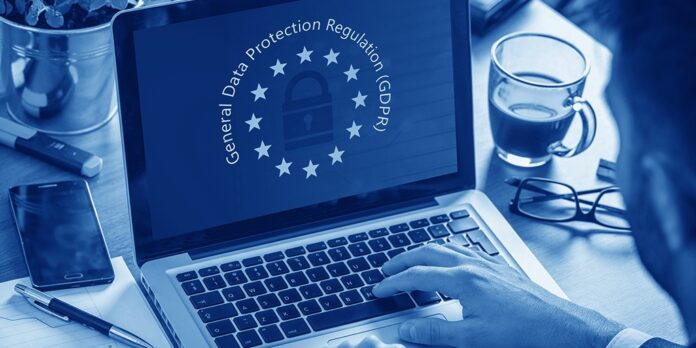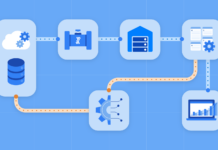Data protection regulations are critical guidelines developed to protect users’ privacy and guard against unauthorized technology-related activities. Tech experts must prioritize adherence to their company’s data protection policies to avoid legal liabilities from regulatory bodies. Firms’ non-compliance can result in legal implications, hefty fines, and reputational damage. Thus, companies must ensure all teams understand the role and importance of complying with data protection regulations and the seven stages of certificate lifecycle management. This blog discusses some critical guidelines for ensuring compliance with data protection regulations.
1. Define Data Protection Guidelines

Tech experts must deeply understand data protection guidelines in their country of operation. For instance, companies operating in the European Union must adhere to the General Data Protection Regulation (GDPR). At the same time, the United States has the California Consumer Privacy Act (CCPA) and similar state laws. Understanding these regulations allows tech experts to design good policies to handle sensitive data from end-users in their operations. Also, data protection guidelines must be reviewed regularly and updated when necessary to remain compliant.
2. Conduct Regular Training and Education for Employees
Compliance with data protection regulations is everybody’s responsibility in an organization. As such, tech experts must keep their employees informed of the importance of data protection and the consequences of non-compliance. Regular training and education ensure employees understand how sensitive data is handled and know their responsibilities to protect users’ privacy.
3. Implement Security Measures
Security measures are necessary to protect sensitive data and ensure compliance with data protection regulations. These measures can be installed at the software, hardware, and network levels to prevent unauthorized data access, breach, and theft. Examples of actions include encryption, firewalls, secure passwords, and multi-factor authentication. Regular audits of these measures must be conducted to verify their effectiveness and make improvements where necessary.
4. Adopt a Comprehensive Data Protection Policy
Adopting a comprehensive data protection policy is vital for companies aiming to comply with data protection regulations. Such a policy outlines how sensitive data is handled, who can access it, how it is stored, and how it’s protected from unauthorized access. The policy also outlines the company’s measures to detect, investigate and communicate data breaches. This data protection policy must be reviewed regularly and updated according to the changing regulatory landscape.
5. Adhere to Data Protection Requirements at All Times
Meeting the requirements of data protection regulation once isn’t enough. Companies must always adhere to data protection requirements to build users’ trust and maintain compliance. Failure to adhere to data protection regulations’ requirements can result in heavy fines and reputational damage to the company.
How Can Understand The Seven Stages Of Certificate Lifecycle Management Help With Data Protection Regulations?

Understanding the seven stages of certificate lifecycle management (CLM) can help companies comply with data protection regulations. CLM is essential for secure and reliable information exchange between two parties. It applies to systems such as digital certificates, authentication tokens, and other encryption solutions organizations use.
The seven stages of CLM include initiation, enrollment, issuance and distribution, activation and access control, management and monitoring, renewal and revocation, and archival. All these stages help tech experts manage certificates securely and ensure compliance with data protection regulations. For instance, the management stage helps identify certificate vulnerabilities that could be exploited to gain unauthorized access to data. Additionally, the renewal stage ensures that all certificates remain up-to-date and compliant with data protection regulations. By understanding these stages, tech experts can implement proper CLM processes and strategies to ensure compliance with data protection regulations.
Why Is It Important?
Data protection is a crucial issue in today’s world, where everything is digitalized. As businesses and organizations store more and more sensitive information electronically, it becomes increasingly important to ensure that this information is properly protected. The Guidelines for Ensuring Compliance with Data Protection Regulations provide a roadmap for businesses and organizations to ensure that they are keeping their customers’ information safe. Here are a few reasons why following these guidelines is so important.
Firstly, data protection regulations are in place to protect people’s privacy. People have a right to privacy, and this includes their personal information. Following the Guidelines for Ensuring Compliance with Data Protection Regulations ensures that businesses and organizations are respecting people’s privacy and protecting their sensitive information. Any breach of this privacy can have significant consequences for both the customers and the business. For example, if customer data is leaked due to non-compliance with data protection regulations, the business will lose their customers’ trust, and this can lead to a damaged reputation and financial penalties.
Secondly, complying with data protection regulations is also important for legal reasons. Businesses must comply with these regulations to avoid legal consequences. Data protection regulations are stringent, and authorities impose severe penalties on businesses that breach these regulations. Failing to comply with data protection regulations can lead to lawsuits, fines, and even imprisonment in some cases. By ensuring compliance with these guidelines, businesses can avoid these legal consequences and focus on running their business without worrying about regulatory issues.
To summarize, it is essential to follow the Guidelines for Ensuring Compliance with Data Protection Regulations for both ethical and legal reasons. Compliance ensures that businesses respect people’s privacy and protect sensitive information, which helps maintain customer trust and avoids reputational damage. Non-compliance with data protection regulations can lead to legal consequences such as heavy fines and lawsuits. Therefore, it is important that businesses and organizations are aware of the guidelines and follow them to ensure that they maintain the highest level of compliance with data protection regulations.
Final Thoughts

Compliance with data protection regulations continues to play a critical role in tech operations. Tech experts must prioritize understanding regulatory guidelines, conducting employee training and education, implementing proper security measures, adopting a comprehensive data protection policy, and adhering to data protection requirements to ensure compliance with these regulations. In an era of increased data protection regulations and continued data breaches, companies must adhere to regulatory requirements to protect users’ privacy, avoid legal liabilities, and safeguard their reputations.









